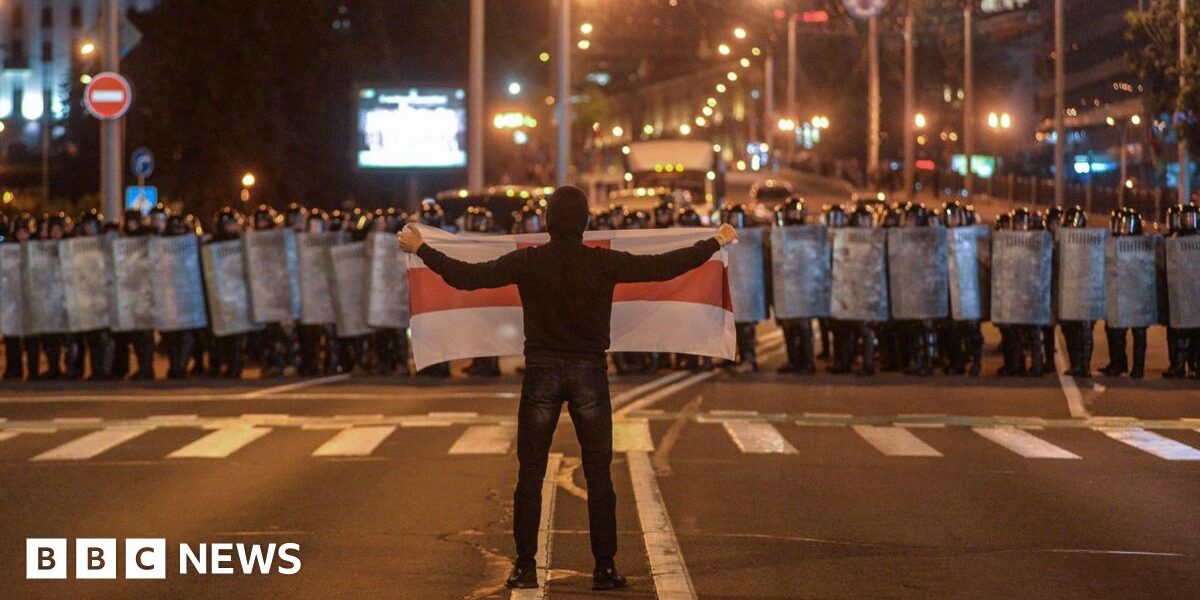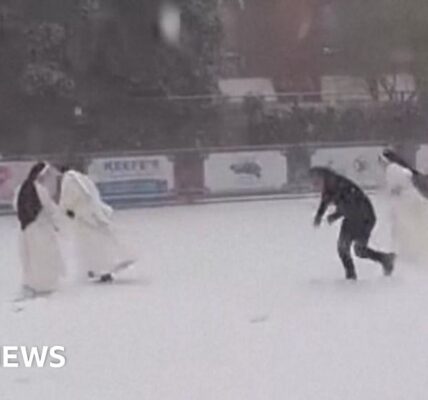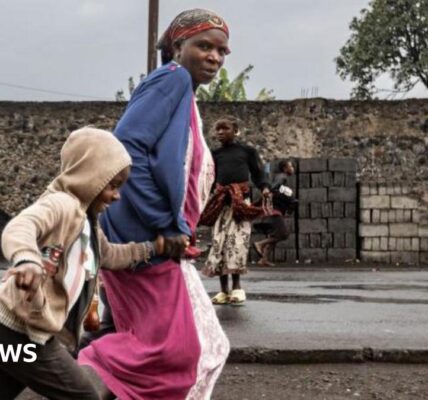Svetlana Tikhanovskaya believes the ongoing repression shows that Lukashenko and his allies are afraid.
“The trauma of 2020 is still alive and he has to eliminate any possibility of uprising,” the opposition leader argues.
“He knows the Belarusians didn’t accept or forgive him, and they still want change.”
But she admits there’s little sign of that in the short-term.
For a time after Russia’s full-scale invasion of Ukraine, Belarusians hoped their neighbours might succeed in defeating Putin with Western help, and that Lukashenko would follow him.
Some headed for the front line themselves, choosing force after their peaceful protests had failed.
But Ukraine’s military is now struggling to hold ground and President Donald Trump is pushing for peace talks.
“The democratic world can’t make concessions to Putin,” Tikhanovskaya argues, describing Lukashenko as equally dangerous to the world.
He let Russia launch missiles at Ukraine from Belarus and send its tanks through his territory.
He’s also allowed the free flow of migrants to the Polish border and into the EU.
“He allows Putin to deploy nuclear weapons and his army in Belarus, and it’s a very short path to Poland and Lithuania,” Tikhanovskaya points out.
“He and Putin are a pair, and they support other dictators. He’s part of this chain of evil.”
There is little doubt that Sunday’s reinstatement of Alexander Lukashenko will go according to his plan.
“Those people are very capable,” explains Yana, the former political prisoner.
“They really did crush the potential for protest.”
She’s now trying to return to her profession as a vet, but in Poland, and to recover from three tough years behind bars.
Those I spoke to now see Lukashenko retiring, or eventually dying, as their greatest hope of seeing democracy.
In the meantime, many are switching focus: there’s been a surge of interest in reviving the Belarusian culture and language, an opposition cause. It’s the most many dare do in such circumstances.
“No-one says it openly, but we feel like there are no prospects. There’s depression,” Natalia admits.
But there are no obvious regrets, even so.
Svetlana Tikhanovskaya’s own life has changed dramatically since she was thrust into politics.
Cut-off from her country, her husband is also a political prisoner – kept in total isolation for almost two years.
The opposition leader insists she still “truly believes” in change.
“2020 was a huge shift in mentality in Belarus. I don’t know how long it will take, but that shift will not disappear.”





